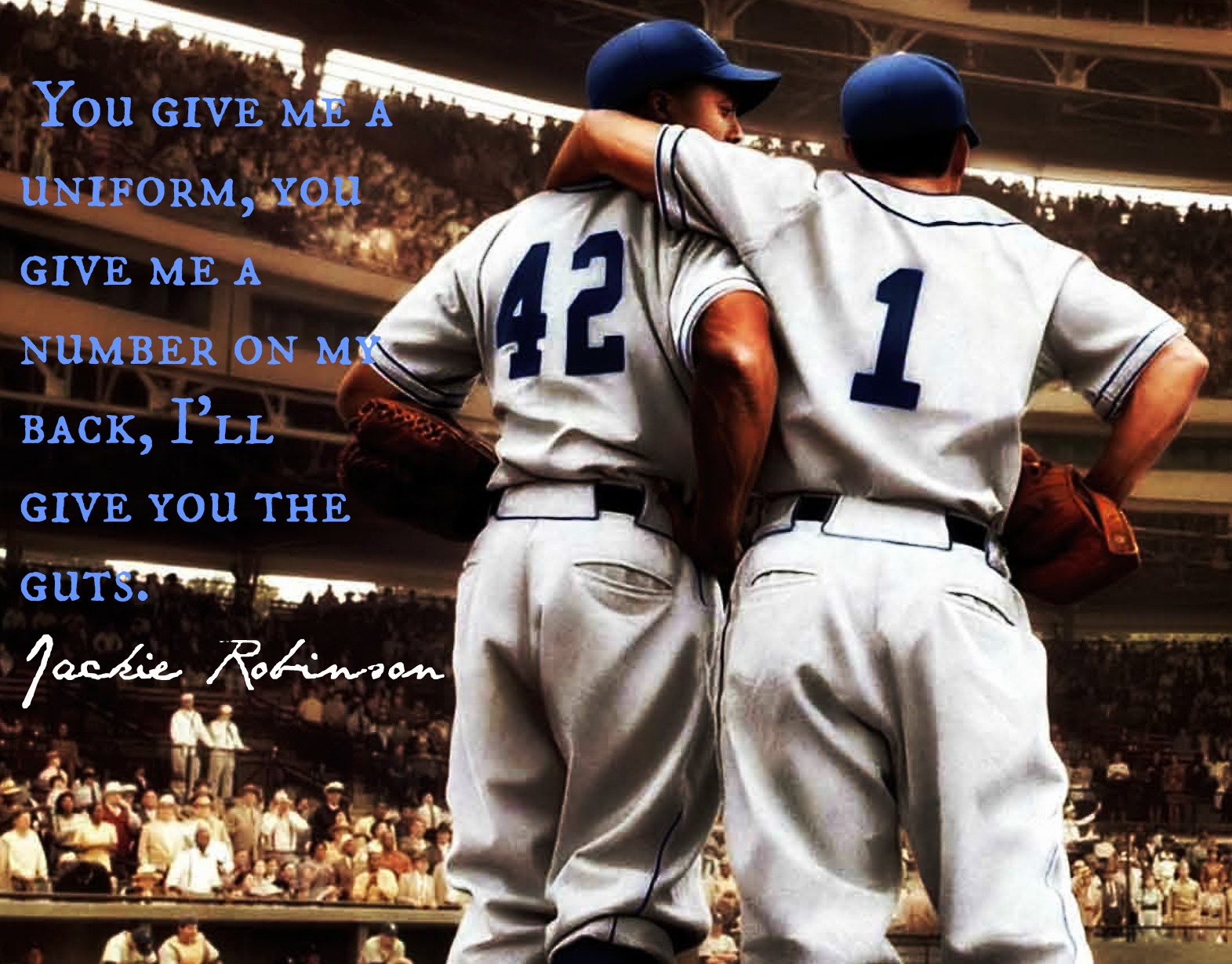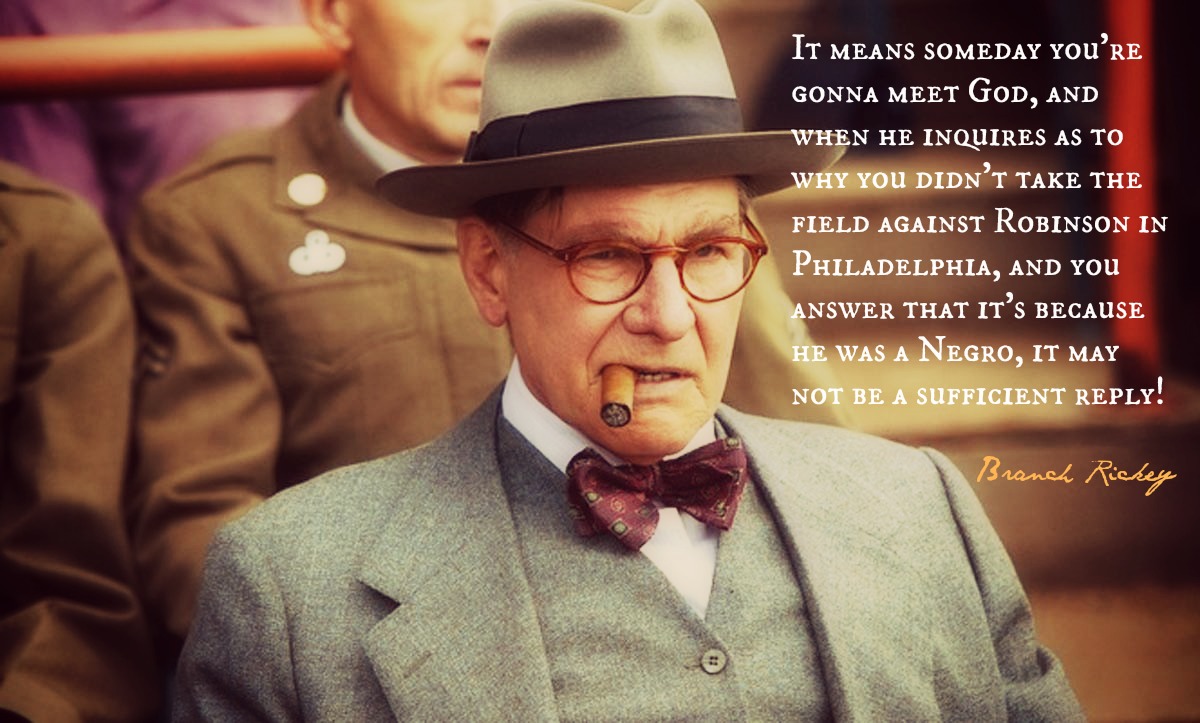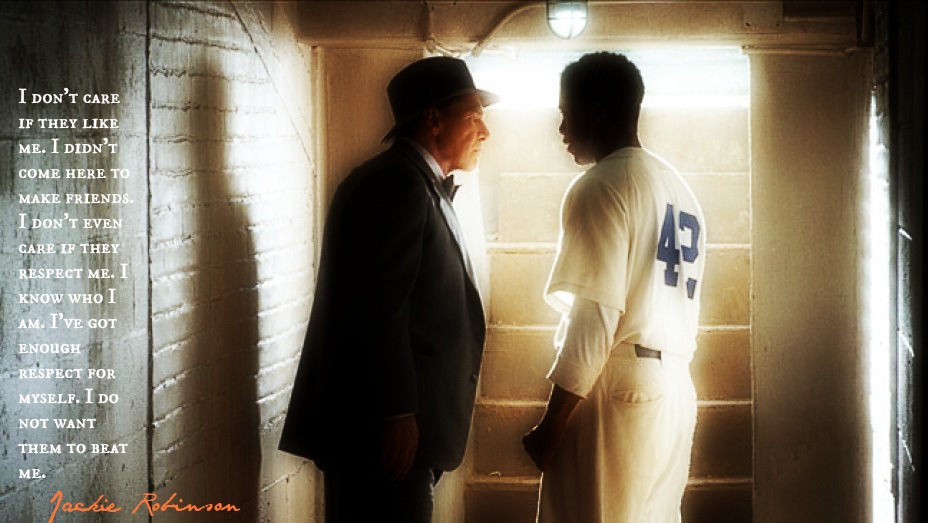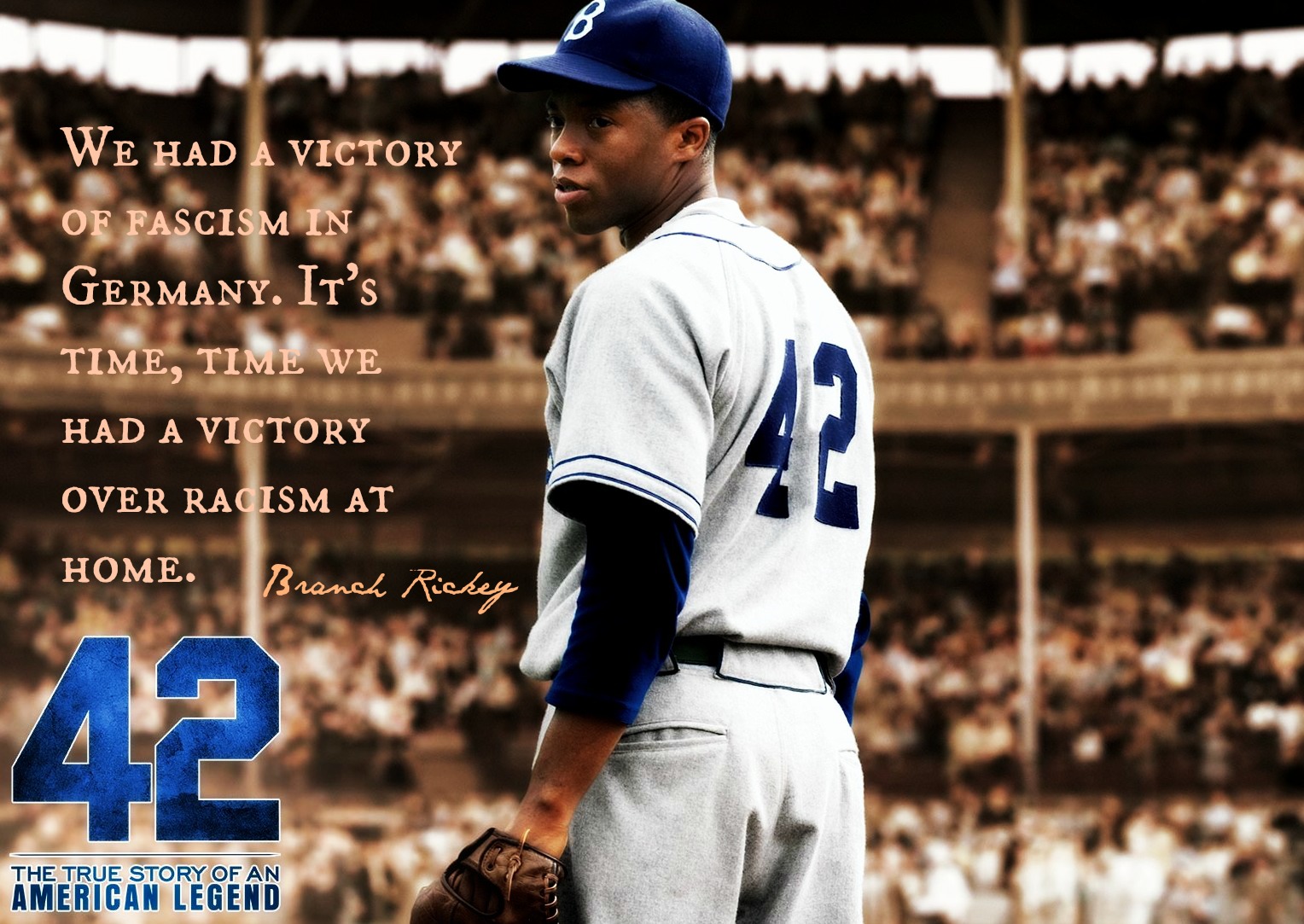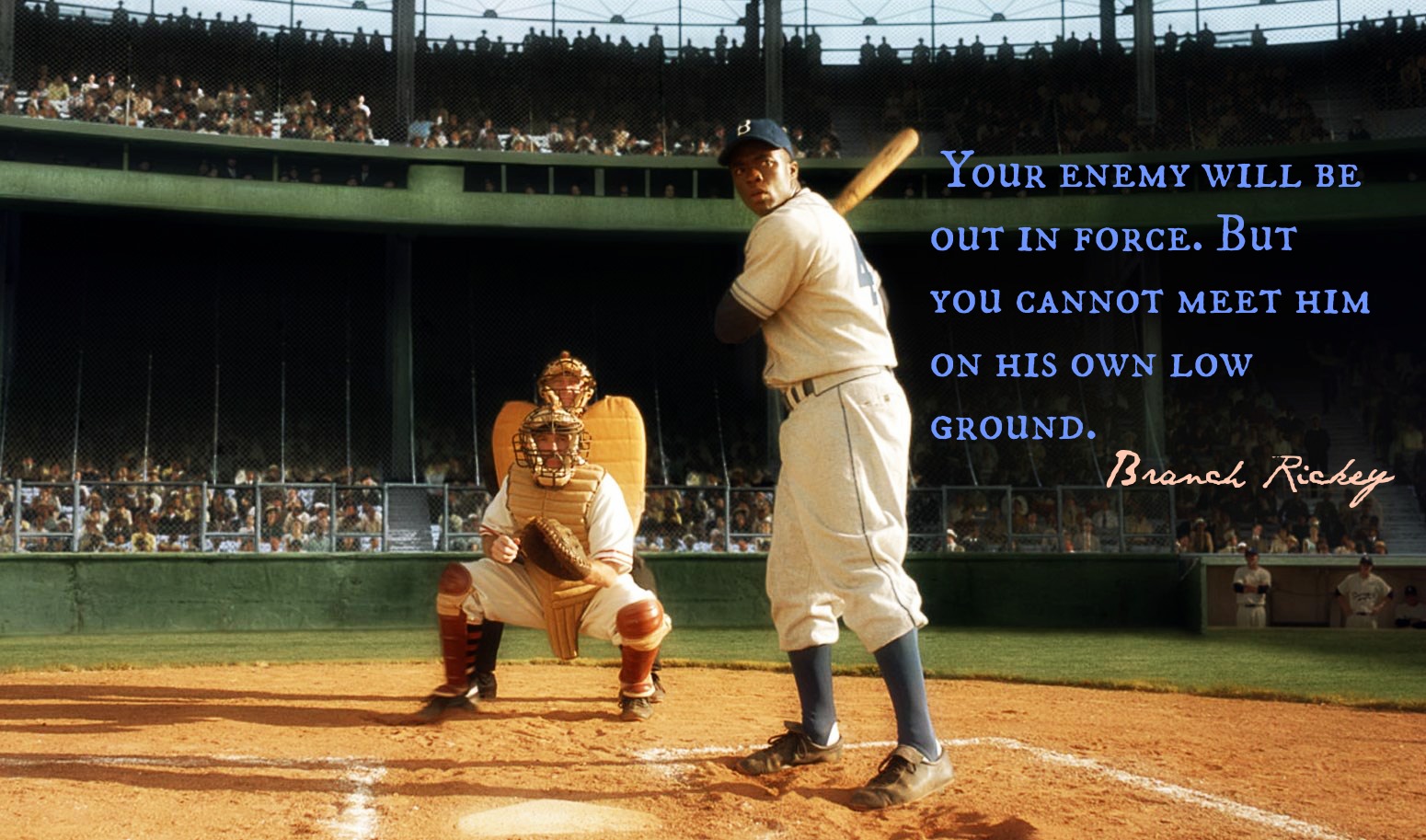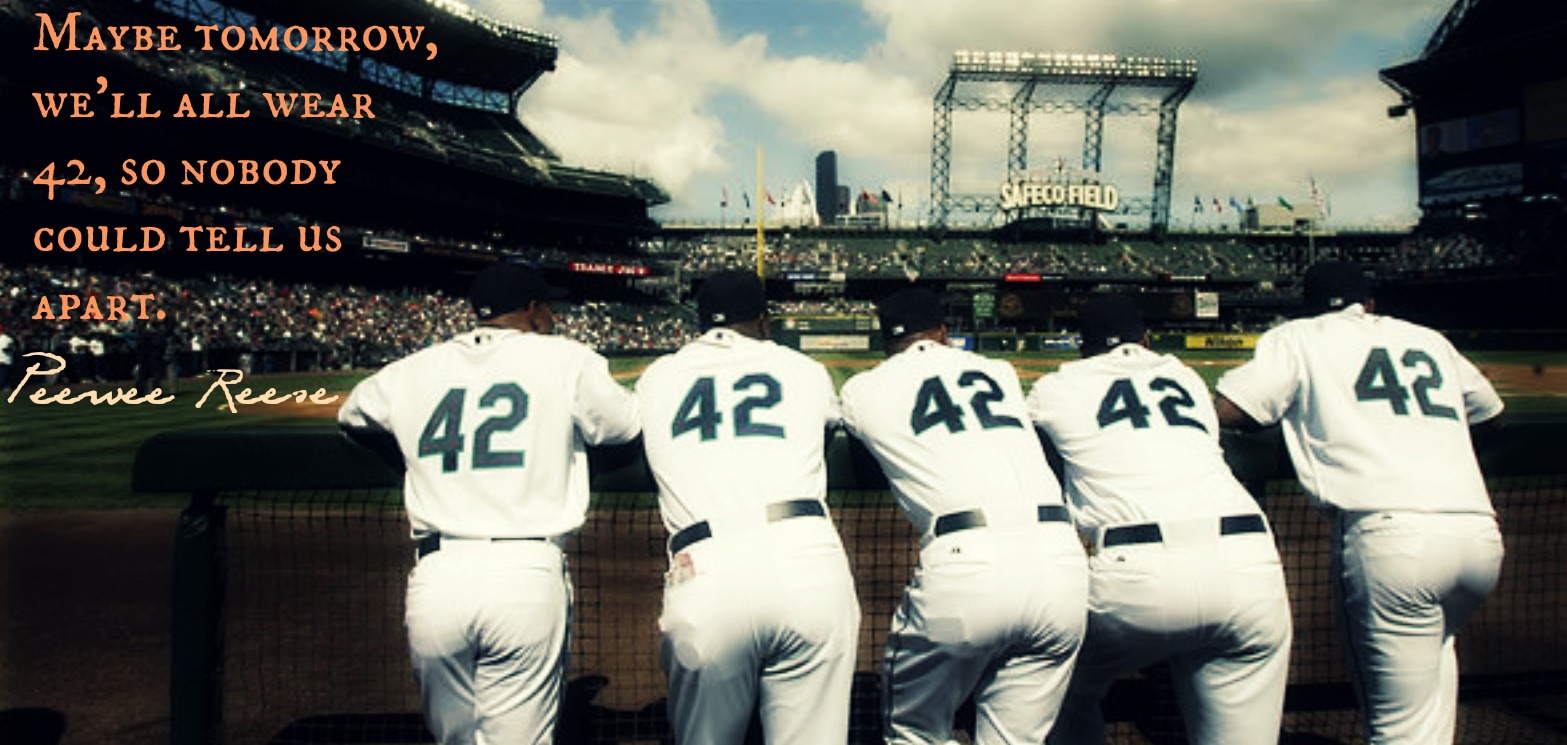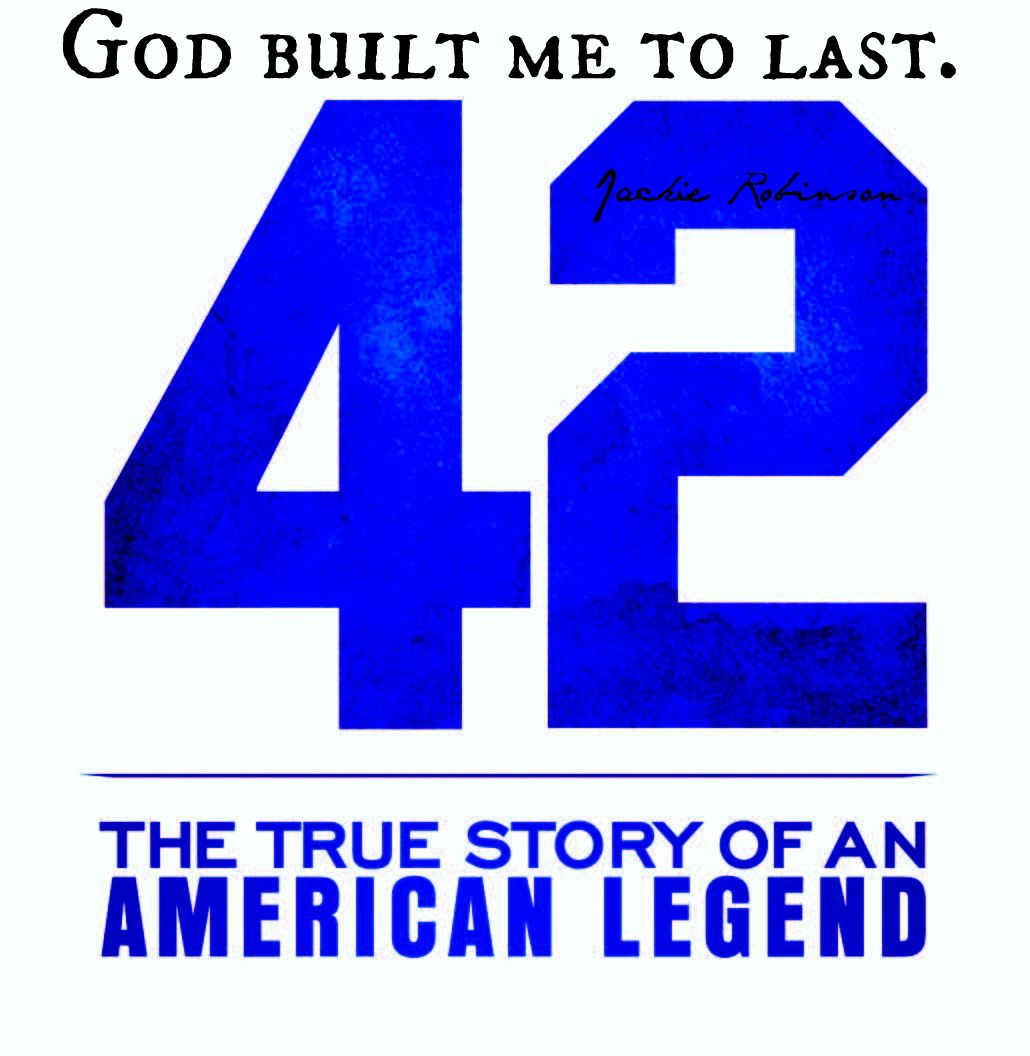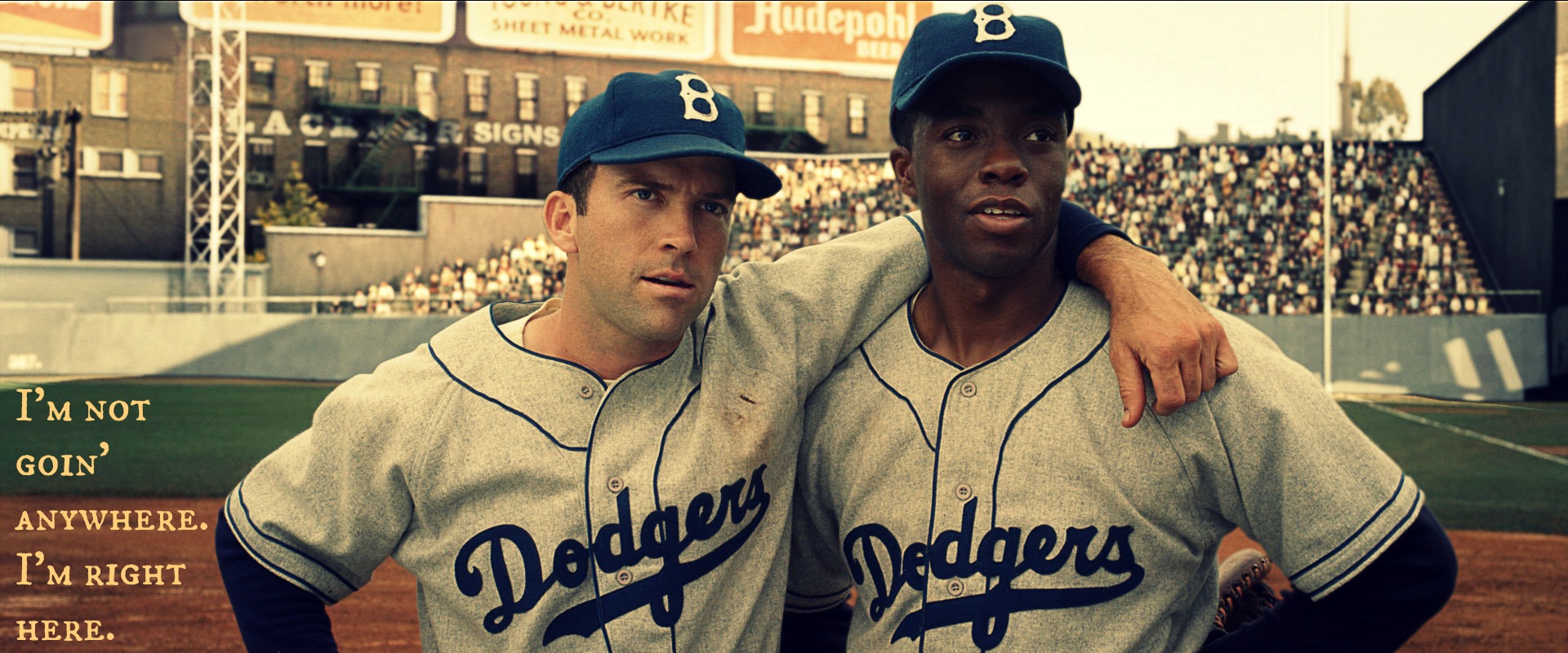Jackie Robinson Quotes
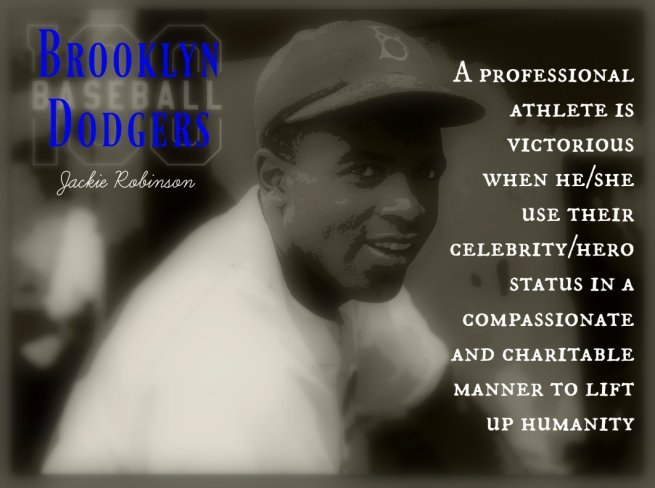
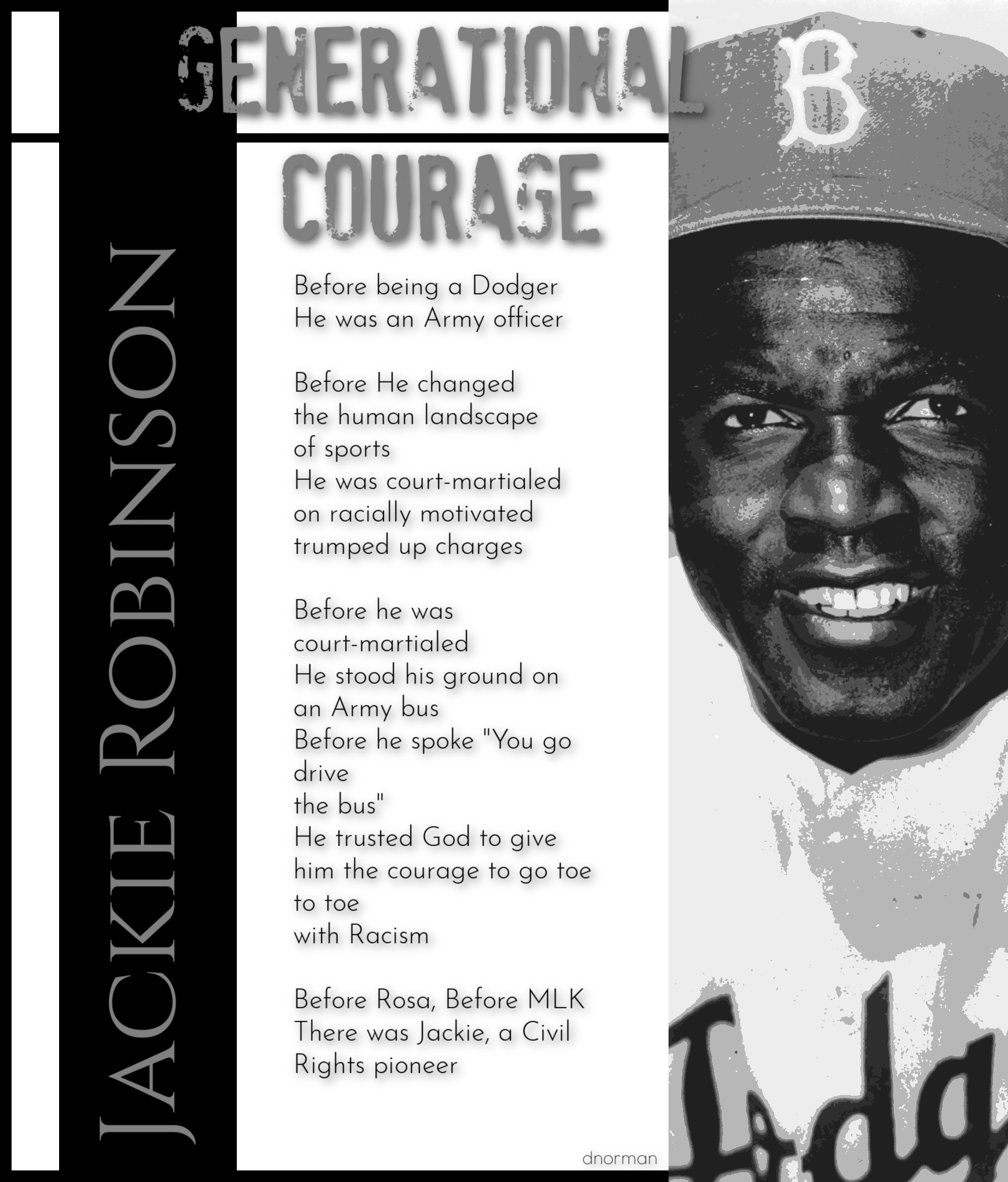
| Life
changing quotes from the first black baseball player to
cross the color barrier in Major League Baseball. In doing so,
he
was a pioneer in the U.S. civil rights movement. He took racism head on
and held his ground with faith and a desire to make this world a better place to live. His legacy shall stand forever. |
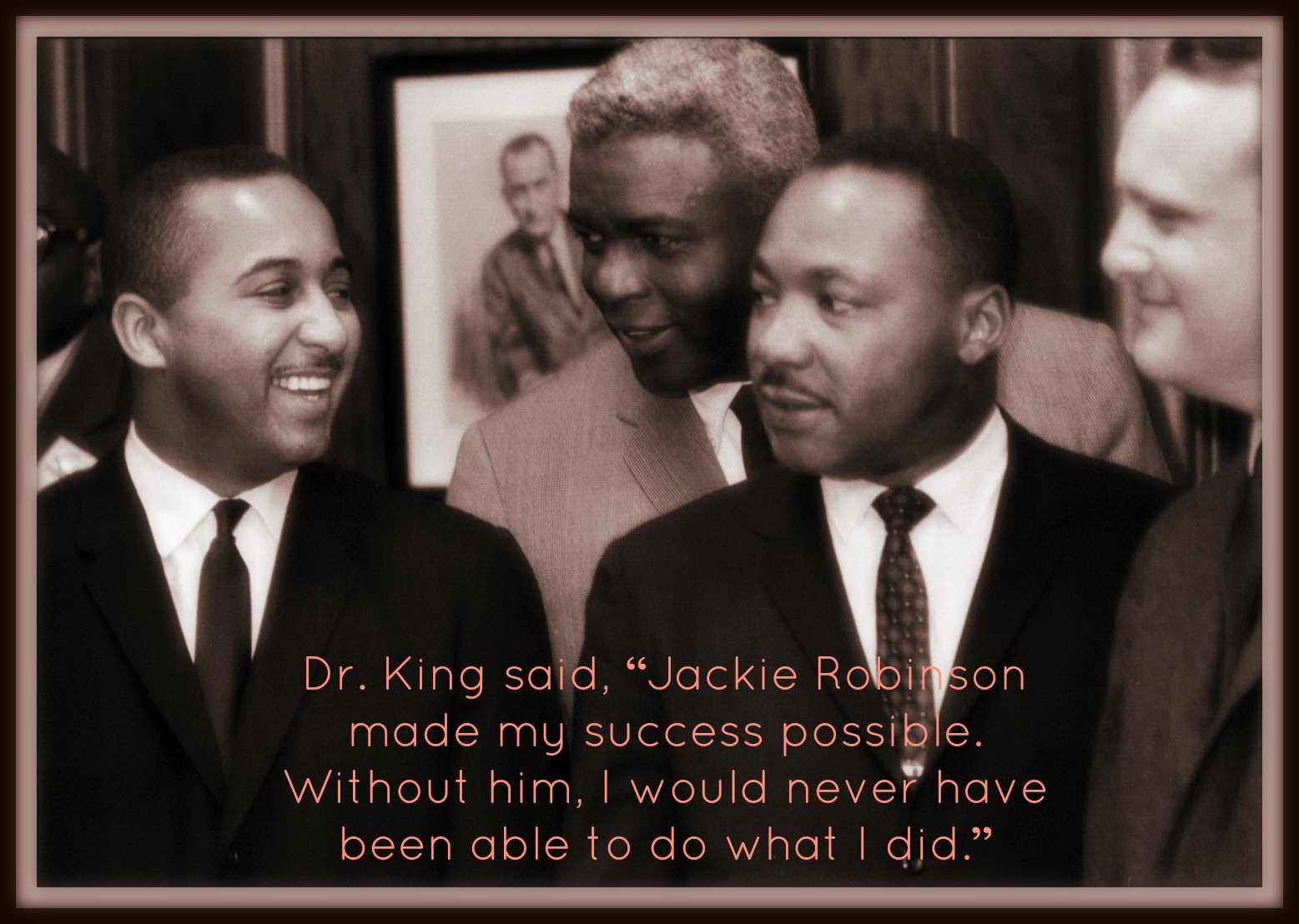

| Before
Martin Luther King Jr. marched in Alabama and on the Washington mall,
Jackie Robinson marched around the bases on major league ball fields.
King was 18 years old when Robinson broke the modern color barrier in
America's pastime. Robinson's arrival in baseball gave the civil rights
movement one of its biggest bats with which it could knock down
segregation and racism. King appreciated what Robinson endured so that
others could follow him. |
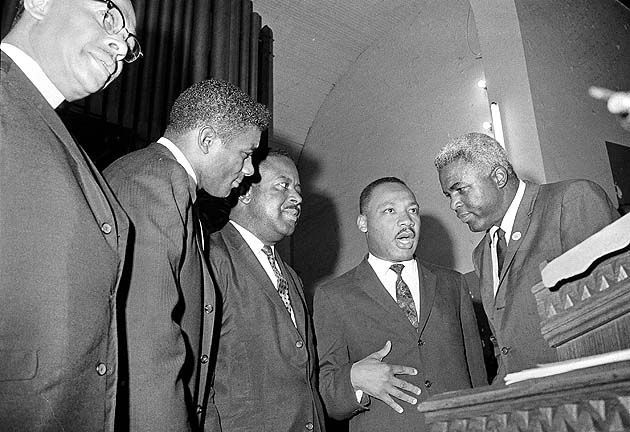

Examples of Historical Thinking
Jackie Robinson & MLK Jr. - Mallie Robinson

| Via
Sports Illustrated, here's what King said about Robinson's impact on
civil rights: As Robinson's career was winding down with the Brooklyn Dodgers, Robinson started to speak out for civil rights. Many people in the press and civil rights community discouraged Robinson from taking this step, worried it would tarnish his image, and even argued that as an athlete Robinson had no vocal place in the struggle. But King, by then the movement's undisputed leader, said that Robinson had every right to speak because he was "... a pilgrim that walked in the lonesome byways toward the high road of Freedom. He was a sit-inner before sit-ins, a freedom rider before freedom rides." An emboldened Robinson toured the south to speak for civil rights and became the most requested speaker on the circuit: more requested than even Dr. King. He would end every speech the same way, saying, "If I had to choose tomorrow between the Baseball Hall of Fame and full citizenship for my people I would choose full citizenship time and again." |
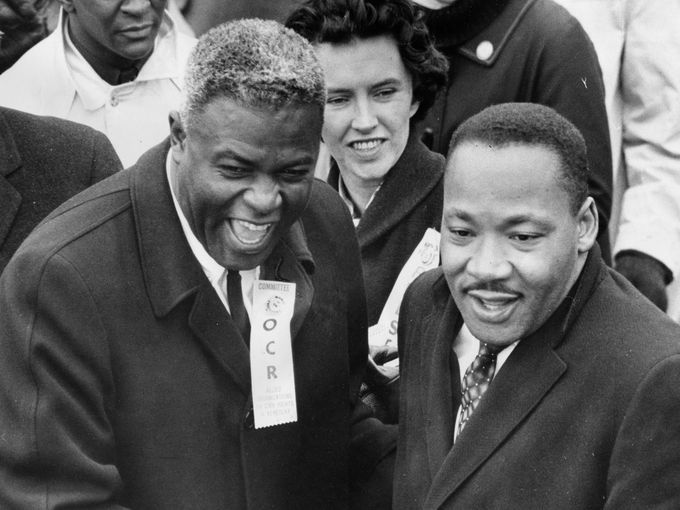

Mini Bio: Jackie Robinson

| On
December 1, 1955, Rosa Parks refused to move to the back of a bus in
Montgomery, Alabama. But on July 6, 1944, Lieutenant Jack Roosevelt
(“Jackie”) Robinson also refused to move to the back of the bus, and he
received a court martial. Jackie Robinson, later to become famous as the first black to integrate major league baseball in modern times, was assigned to Camp Hood near Waco, Texas during World War II. Camp Hood had a bad reputation among blacks, not only because of the segregation on the post but also because of the depth of racism in the neighboring towns. On July 6, 1944, Robinson was riding a bus on the base and sitting next to a fellow officer’s light-skinned wife. The driver instructed Robinson to move to a seat farther back. Robinson argued with him, and when he got off at his stop, the bus dispatcher joined in the altercation. A crowd formed and military policemen arrived. The MPs took Robinson into the station. John Vernon, an archivist at the National Archives (Prologue, Spring 2008), tells what happened next: “…when they arrived at the station to meet with the camp’s assistant provost marshal, a white MP ran up to the vehicle and excitedly inquired if they had ‘the nigger lieutenant’ with them. The utterance of this unexpected and especially offensive racial epithet served to set Robinson off and he threatened ‘to break in two’ anyone, whatever their rank or status, who employed that word.” Robinson continued to show “disrespect” and received a court martial. Robinson contacted the NAACP and sought publicity from the Negro press. He also wrote to the War Department. The white press picked up on the situation as Robinson was a well-known athlete from his days at UCLA. (In his time at UCLA, Robinson won a national championship in track and field, two consecutive conference scoring titles as a basketball player, was an honorable mention All-American in football, and also played a little baseball.) Higher ups were worried about this “political dynamite.” |
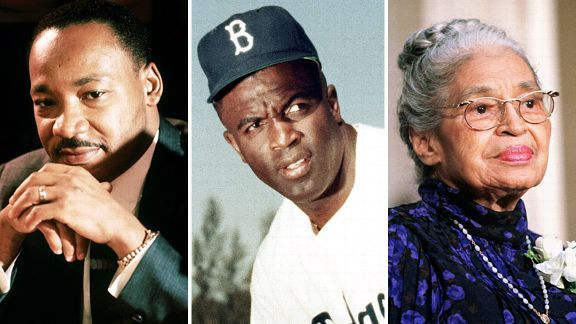

Rosa Parks - Mini Bio

| Born
in Ohio in 1881, Branch Rickey had a modest career as a baseball player
before becoming an innovative figure in the sport's management. In
1919, he designed the farm system of training and advancing players on
which Major League Baseball would come to rely. In 1942, he was named
general manager and president of the Brooklyn Dodgers, where he broke
the long-standing race barrier in 1945 by signing Jackie Robinson, the
first black player in the major leagues (Robinson made his major league
debut in 1947). Rickey went on to become a prominent civil rights
spokesman, and he remained a larger-than-life figure in the baseball
world until his 1955 retirement. Read more....... |
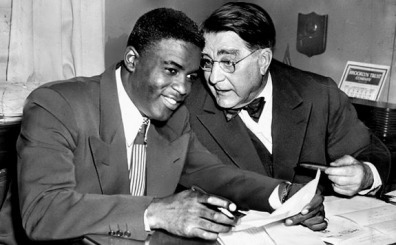

Branch Rickey and Jackie Robinson Partnership


